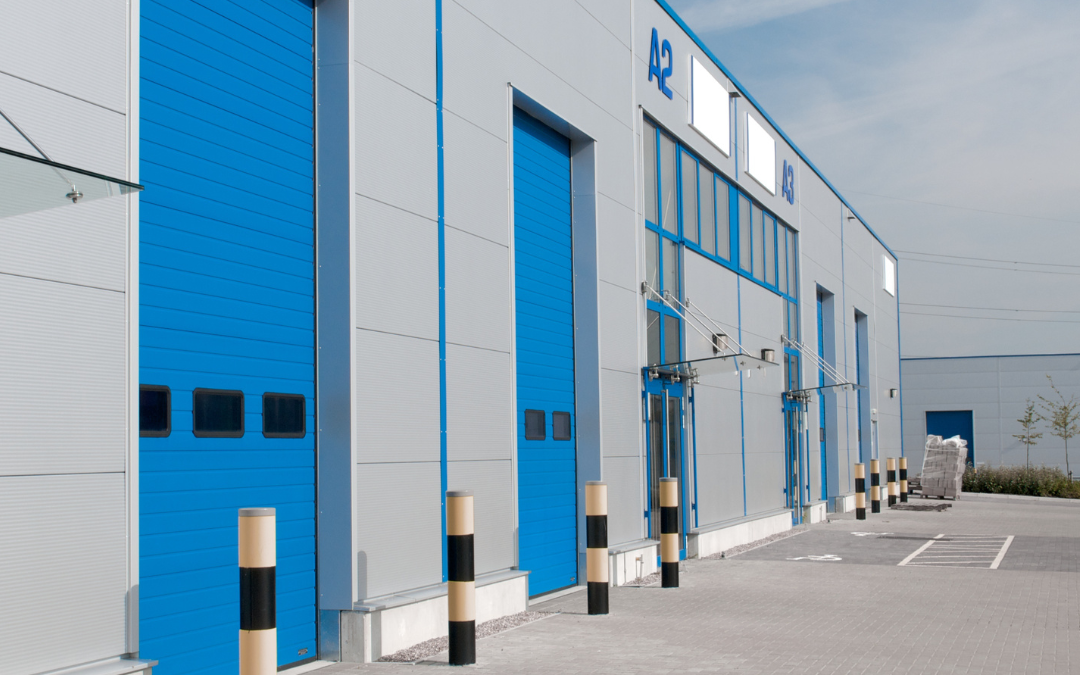The Belgian market for small and medium-sized enterprises (SMEs) is a dynamic and essential sector that makes a significant contribution to the economy. SME units, consisting of industrial, office and commercial space, are crucial for these businesses. They provide the necessary infrastructure and facilities that help entrepreneurs and businesses flourish. In this article, we will take an in-depth look at what exactly SME units mean, provide an overview of the current Belgian SME unit market, and analyse the latest trends and developments in this sector.
Immotokens offers investments in SME units from different players. You can opt for a starter formula (investing in SME units from €1,000) or a co-invest formula (investing from € 100,000). So you can own SME-Units without borrowing and enjoy all the benefits of this investment.
Introduction
SMEs are the backbone of the Belgian economy. They represent a large proportion of the country's businesses and are an important source of employment. The availability of suitable SME units is therefore vital to the health and growth of these businesses. These units play a key role in facilitating business activities, from manufacturing and logistics to office work and retail.
Demand for SME units has grown steadily over the years, driven by the growing economy and the increasing need for specialised business space. The Belgian market has adapted to this demand by offering a diverse range of SME units, which vary in size, location and amenities.
Definition of SME-Units
SME units are business premises specifically designed for small and medium-sized enterprises in Belgium. These units vary in type and size to suit the various needs of different businesses. They can be categorised into three main types: industrial units, office spaces and commercial spaces.
What are SME units?
SME units are multifunctional spaces used for a wide range of business activities. They provide the flexibility and infrastructure needed for SMEs to operate efficiently and effectively. These units are often located in business parks or specific commercial zones, making them accessible and able to create synergies with other businesses.
Types of SME units
- Industrial Units: These are designed for production, assembly, storage and distribution. They are often equipped with large storage facilities, loading and unloading docks, and sufficient space for heavy machinery.
- Office spaces: These units are designed for administrative and management activities. They are usually equipped with modern office facilities, meeting rooms and technological facilities.
- Trading rooms: These are intended for retail and direct sales to consumers. They are often located in high-traffic locations and are designed to provide an attractive shopping experience.
These units play a vital role in Belgium's economic landscape as they provide an affordable and flexible solution for SMEs to grow and develop. They are a crucial link in the value chain of many sectors and contribute to the country's economic diversity and resilience.
Overview of the Belgian SME unit market
The Belgian market for SME units is a complex and multifaceted landscape, characterised by diverse players, regional nuances, and constantly evolving dynamics.
Market size
The Belgian SME unit market is significant, with steady demand for both rental and owner-occupied units. The market is driven by the need for flexible and affordable business space by a growing number of small and medium-sized enterprises. These units range from small office spaces to large industrial complexes, depending on the needs and nature of the businesses.
Research firm CBRE published a report on the Belgian SME unit market in 2023. The report concludes that demand for SME units will continue to grow in the near future. According to the Federal Planning Bureau, there were about 1.5 million SMEs operating in Belgium in 2022, accounting for about 70% of total employment. The average size of an SME is 6.5 employees.
Key Players
The market is dominated by a mix of local and national developers, real estate funds, and private investors. These parties play a crucial role in offering various SME units tailored to the diverse needs of Belgian companies. There are also government initiatives and programmes aimed at supporting SMEs in finding suitable business premises.
A key player and partner of Immotokens in Belgium is BVI.eu. Are are developer of SME units in europe but also in Belgium. Other parties where you can find SME real estate as an investment are CBRE, Unit Building, Oreon Properties, SME Real Estate.
Regional Differences
The SME unit market in Belgium varies greatly by region. In urban areas such as Brussels, Antwerp and Ghent, there is high demand for office space and smaller commercial units. In contrast, in more rural areas, such as Wallonia, larger industrial units are more popular, often used for production and logistics purposes. These regional differences reflect the country's economic diversity and the specific needs of local companies.
The Belgian SME unit market offers a range of opportunities for entrepreneurs and investors. With a constantly changing economic environment and the continued growth of SMEs, this market remains a vital component of the Belgian economy.
Recent Trends
Recent trends in the SME unit market are multifaceted. There is an increasing demand for flexible and modular office spaces that are adaptable to the changing needs of businesses. There is also growing interest in units in strategic locations, such as near transport networks and urban centres, promoting logistical efficiency and better accessibility for employees and customers.
1. Technological Developments
Technological innovations are having a significant impact on the SME unit market. Smart building technologies, such as automated climate control and energy management systems, are increasingly being implemented to improve the efficiency and sustainability of business premises. In addition, digitalisation and the rise of e-commerce are causing a shift in demand for different types of SME units, with a greater emphasis on logistics and distribution capabilities.
2. Impact of COVID-19
The COVID-19 pandemic has led to a rethink of the workspace needs of SMEs. There is an increased demand for flexible workspaces and the possibility for employees to work from home, resulting in a shift towards smaller but better-equipped office spaces. The pandemic has also led to a greater emphasis on health and safety in the workplace, with adapted designs and facilities to support this.
What does the future look like for the SME unit market in Belgium?
The Belgian SME unit market is an important and growing market. In 2022, there were about 1.5 million SMEs operating in Belgium, accounting for about 70% of total employment. Demand for SME units is therefore strong, and supply is limited.
Analysis of current trends and developments
There are a number of trends and developments affecting the Belgian SME unit market. First, there is an increasing demand for SME units in urban areas. This is due to the growth of the economy and the increase in urbanisation. Secondly, there is an increasing demand for SME units with a multifunctional use. This is due to the changing needs of SMEs, which are increasingly looking for spaces suitable for both office and production purposes.
The Belgian SME unit market is an attractive investment market with a number of positive trends and developments. However, investors interested in this market should be aware of the potential risks, such as the limited availability of SME units and dependence on the economic situation.
Investors interested in SME units in Belgium can follow the following recommendations:
- Focus on urban areas: Demand for SME units is highest in urban areas.
- Consider multifunctional units: SMEs are increasingly looking for spaces suitable for both office and production purposes.
Investing in SME units: Pros and cons, risks and returns
SME units are small, self-contained business premises suitable for small and medium-sized enterprises (SMEs). They are often used for offices, shops, workshops or warehouses. Investing in SME units can be an attractive way to diversify a property portfolio and generate stable returns.
7 benefits of investing in SME units
1. Attractive Returns
One of the most compelling reasons to invest in SME units is the potential for high returns. Compared to traditional investments such as residential real estate or large commercial properties, SME units often offer higher rental yields. This is due to the steady demand for affordable and flexible business space, especially in urban and suburban areas.
2. Spreading risk
Diversification is a crucial aspect of any investment portfolio. By investing in SME units, investors can spread their risks across different sectors and businesses. These units often house a wide range of companies, from start-ups to established small businesses, which reduces the risk of vacancy.
3. Economic Resilience
Small and medium-sized enterprises are the backbone of the Belgian economy. They tend to be more resilient in economically uncertain times than larger companies. This resilience translates into stability for investors, as SMEs tend to retain their business spaces even in difficult times.
4. Long-term value increase
Real estate, including SME units, has historically shown steady long-term value appreciation. This is especially true in areas with limited space for new developments, where demand for business space continues to grow. This increase in value is an important factor for investors looking for capital growth.
5. Flexibility and scalability
SME units offer a high degree of flexibility for both tenants and investors. These units can be easily adapted to the changing needs of small businesses, making them attractive to a wide range of tenants. For investors, this means they can react quickly to market changes and adjust their property portfolio.
6. Incentive for Local Economies
By investing in SME units, investors contribute to the growth and development of local economies. SMEs are often major employers and contribute to the economic diversity and vitality of a region.
7. Tax benefits
In many cases, investments in SME units offer certain tax advantages. These can range from deductions for depreciation and maintenance costs to potential tax reductions on rental income.
Conclusion
Investing in SME units offers an attractive combination of high returns, risk diversification and contribution to the local economy. With their resilience in economically uncertain times and potential for long-term value appreciation, they are a strong addition to any property portfolio. As the market continues to evolve, SME units remain a wise choice for both new and experienced investors.
Disadvantages of investing in SME units
There are also some drawbacks to investing in SME units. First, SME units are generally less liquid than other types of property. This means it can be harder to sell your investment quickly if you want to.
Secondly, SME units may require more maintenance than other types of property. SMEs often have specific requirements for their business spaces, so you need to make sure your units meet these requirements.
Risks of investing in SME units
Like any investment, there are also risks associated with investing in SME units. One of the main risks is that rents may fall if the economy goes into recession. This could lead to a drop in your returns or even a loss of money.
Another risk is getting a tenant who does not pay. If you have a tenant who does not pay, it can be difficult to get your money back.
Return on investment in SME units
The return on investment in SME units depends on a number of factors, including the location of the units, the size of the units and the quality of the units. Overall, you can expect a gross return of 5-8%. This return can be increased by leasing the units to tenants with a good credit rating.
Conclusion
Investing in SME units can be an attractive way to diversify a property portfolio and generate stable returns. However, it is important to be aware of the pros and cons, risks and returns before making an investment.
Investing in SME Units with Immotokens
Immotokens is a platform that enables investors to invest in real estate, including SME units. Immotokens offers a number of benefits to investors, including:
- Convenience: Investing in SME units through Immotokens is easy and quick.
- Diversification: Investing in SME units through Immotokens offers diversification of your property portfolio.
- Professional management: Immotokens manages your investments professionally.
- Limited budget: You can choose our starter formula or co-invest formula to invest depending on your budget.
If you are interested in investing in SME units through Immotokens, you can find more information on the Immotokens website.



